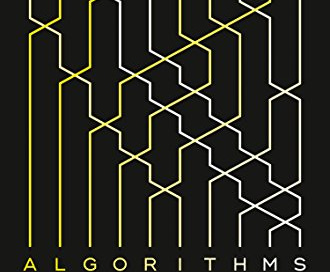In the life of every individual situations present themselves that force a decision to be taken. These can be inane questions such as which restaurant to go to this weekend or they could be questions such as which college to go to or which stock to choose.
For each of these questions, there is an algorithm that can be used to answer the question effectively or to avoid answering the question at all.
This book takes the world of algorithms that have been developed over a century now and helps you apply them to questions that arise in everyday life.
When to stop looking - When you are on the hunt for a new house, or recruiting a new candidate, how many of them should you see before making up your mind? The problem is that the hunt for something better can continue forever, in the process you might lose out on something great!
Explore Vs Exploit - When you have the choice between going after something that you are aware of or going after something new such as picking the restaurant to eat at, or the store to shop clothes from. In computer algorithm terms, explore is when you need to find a new solution and exploit is when you use an existing one.
Making Order - When you have sorted items, choices, guest placement on dinner tables anything that involves creating order from disorder. There are a whole host of sorting algorithms that exist but one needs to be aware of the context in which the same is being used.
Forget about it - What should you remember and what should you not? In computers, a concept of caching exists to deal with overloading the memory. The idea is to figure out the bits of information that are required most often and keep them handy so that they can be referenced quickly.
First things First - There are often situations where several things need to be done. This is something that all of us are confronted with each morning - A to-do list. Scheduling is a daily issue and there are several scheduling algorithms but there is also human psychology that comes into play when scheduling many things.
Predicting the Future - Bayes’s Rule - Using probability to map out the most probable events and then predicting what one needs to be prepared for. Many of us do this subconsciously when it comes to everyday things. Will the bus arrive on time today?
Overfitting - Who amongst us has not overthought a situation and made things worse by thinking more than is essential? There are things that we do not know and often they play a role in the outcome of events. Thinking in such cases is futile.
Randomness - There are entire books written on randomness but this author offers strategies to think about randomness and handle it.
Networking - Perhaps the most important aspect of any person’s life. The place you end up working, the life you end up living, all have their links to the people you surround yourself with. Networking is a theory and there are entire books devoted to how a network should be structured for optimum outcome. Here the application of those theories is from the perspective of life.
Game Theory - In almost any interaction, there is a game that is being played based on what is known and what is unknown. He suggests several ways in which one can look at these games that we play every day.
I found the book quite illuminating and interesting. I would highly recommend reading the book.




